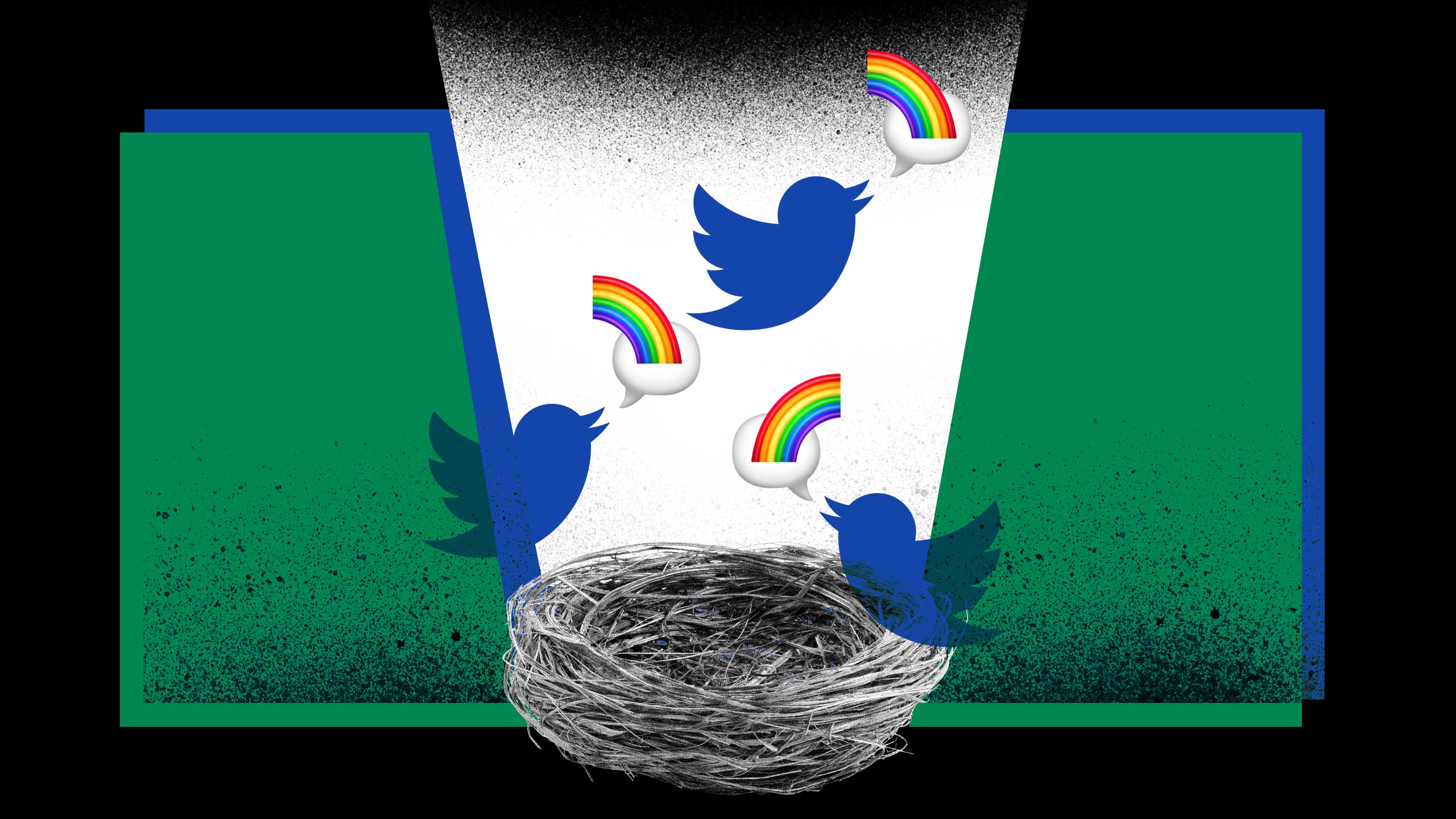In the final hours of May 2020, my friends and I took to Twitter to celebrate the start of Pride Month. Our timelines were like an “explosion of rainbows,” as my friend Demi put it. We posted memes and art, told our coming out stories, uploaded photos posed with rainbow flags and wished our followers a happy Pride Month—and we did it without fear. Here, on queer Twitter, or “Qwitter,” we were safe, hidden behind anonymous accounts and protected by the site’s data privacy policies. Even more so, we felt part of something beautiful: a community of LGBTQ+ Nigerians supporting one another from behind our screens.
Qwitter has become more than just a social network for me—it’s my community. When I think of family, I think first of those many strangers on the internet who have become my “mutuals”—the people who I follow and who follow me back on Twitter. I haven’t met many of them in real life, but our shared experiences have helped me redefine what family is; my mutuals have taught me that I deserve to be loved wholly without having to change parts of myself to fit in.
Twitter is an important space for me and many people like me because it’s often the first place we are exposed to other LGBTQ+ people. When I first joined the social network in 2017, I mostly followed people from my school and my family members. At the time, I never felt free to tweet about the issues that mattered to me because I knew many of my followers were queerphobic and misogynistic. After a few months, I created a new account where I could tweet without worry or fear—and that’s when I started to encounter other queer folks. Seeing people live their truth in a public space inspired me to accept myself regardless of what other people thought. Even though I could not wave a Pride flag in real life, Twitter was a space where I could tell the whole world I was queer while remaining safe from bigots and the queerphobic laws of my country.
“Even though I could not wave a Pride flag in real life, Twitter was a space where I could tell the whole world I was queer.”
Queer people have always existed in Nigeria, but those brave enough to challenge the expectations of gender and sexuality have become walking targets: Nigeria is known as one of the most religious countries on earth—and one of the most homophobic.
In 2014, then-president Goodluck Jonathan signed the Same-Sex Marriage (Prohibition) Bill (SSMPA) into law, specifically targeting queer people and giving police and civilians permission to harass perceived and actual LGBTQ+ persons without consequence. Under this law, queer people have been beaten, raped, forced into heterosexual marriages, disowned by their birth families and killed by fellow Nigerians and the government who backs their actions. Because of SSMPA, a lot of queer Nigerians are forced to perform cisheterosexuality.
Awareness of the discrimination against queer Nigerians came to a head during the #EndSARS protests, which renewed calls for the end of police brutality in the country. But those who turned out in the streets to protest were turned away and silenced by cishet Nigerian men and women. When we held placards proclaiming “queer lives matter” and waved the Pride flag, we were told to sit down and wait our turn. Violently homophobic people were placed at the forefront of the protest, and it felt like we were really alone in this fight.
That’s why Qwitter is such a crucial space for us: It’s a reminder that queer and trans Nigerians are here, thriving and forming communities, organizing safe spaces and supporting one another. It’s a place where we can speak our truths while being protected from the harm inflicted upon us by our families and society. Qwitter allows us to be at once invisible to detractors and visible to each other; it’s a platform where we can talk about our lived experiences and learn about others’ gender, sexuality and non-monogamous relationships. “I honestly believed I was the only queer person in this country before finding community on Qwitter,” Demi, my friend and one of my mutuals, recalls. “It was an exciting thing for me to know that I wasn’t alone.”
“Qwitter allows us to be at once invisible to detractors and visible to each other.”
The platform is also a space to unlearn internalized queerphobia and form meaningful connections with other LGBTQ+ folks. A lot of people use it to learn about LGBTQ+ history and how to gain access to queer-friendly health care, mental health resources and sex education. Nigerian Qwitter has helped provide accommodations and resources to many of its users, and has made it easier to raise funds for LGBTQ+ people that had to leave their homes—especially during the pandemic. One user, Lavender, joined Qwitter at the start of the COVID-19 pandemic to find community among other non-binary Nigerians. “I never had that kind of community in real life,” they say. When they lost their job and home, the social network became their lifeline: “I would not have made it through quarantine without Qwitter.”
For me, Qwitter has been a safe and helpful space to grow and learn more about myself by interacting with other queer people. Even though queer love remains criminalized in my country, community phrases like “Na gay dey reign” and “Be gay, do crimes” have entered my everyday vocabulary, calling us to form community, love radically and exist unapologetically. Qwitter has given me friends, family, partners and a space to just be me.

 Why you can trust Xtra
Why you can trust Xtra


